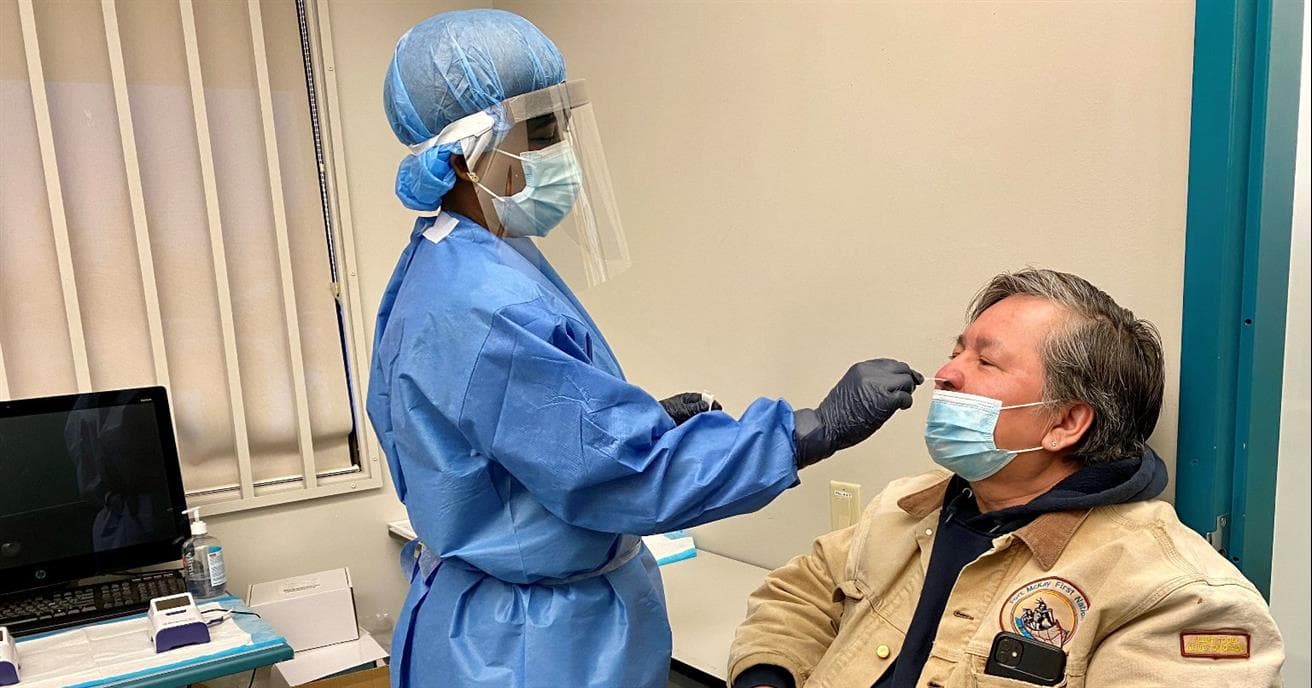We’re collaborating with some of Canada’s largest companies to launch a rapid screening program aimed at keeping essential workers safe and reopening the country’s economy. These companies represent 350,000 workers across Canada. We’ve started three pilots: two of our operating sites and a third one with the First Nation and Métis community of Fort McKay, 60 kilometres north of Fort McMurray, Alta.
The Creative Destruction Lab (CDL) Rapid Screening Consortium is a private-led, not-for-profit initiative formed in August 2020 with the goal of establishing a robust rapid screening system and implementation plan to share across Canada and then the world. Suncor is one of 12 companies in the consortium, which also includes Canada’s biggest airline and grocery chain.
“It’s like wartime – people get together to do something that’s in the interest of everybody,” Marc Mageau, Suncor’s lead on this work and senior vice president of refining and logistics told the New York Times. “These pilots, and others that are taking place across the country as part of the CDL rapid screening consortium, aim to provide early detection of infectiousness to stop the spread of COVID-19 and reopen the economy.”
Rapid screening at Suncor is quite new. Our first pilot, focused on essential workers, started Jan. 25 at Suncor’s Oil Sands Base Plant, and Feb. 1 at the Sarnia refinery. We’ve also started a screening pilot at the First Nation and Métis community of Fort McKay, the only rapid screening pilot in an Indigenous community in the country.
Fort McKay is close in proximity to our operations and through our long-standing relationship with the community, we worked with community leaders to define the pilot scope and logistics which involves screening regional health facility workers, primary caregivers for the elder care centre as well as employees that work in our operations.
The pilot locations have been selected to help us understand how this can work effectively in a variety of community and work settings: offices, airports, arenas and operating areas like Suncor’s Oil Sands Base Plant and refineries. Participation in the rapid screening pilots is voluntary, and participants agree to be screened twice a week for 10 weeks.
Tom Day, director of energy and utilities at Suncor, was the first at our Oil Sands Base Plant to be screened.
“Being part of this pilot is important to me. It gives me confidence that I’m taking every possible precaution, and that I am keeping my family safe” says Tom. “It’s also great to be part of something that could help the Canadian economy get back in business while we wait for the vaccine.”
New rapid screening technology can determine infectiousness for COVID-19 even without symptoms, produce results within 15 minutes, and has a false negative rate of less than 10 per cent. This is key to stopping the spread of COVID-19, along with our most basic protocols (masking, hand washing and physical distancing), vaccines and contact tracing. Adding this additional layer is an important step in making Canadians safer, and supports the effort to safely reopen the economy.
Other companies participating in the CDL Rapid Screening Consortium include Air Canada, Canada Pension Plan Investments, Genpact, Loblaws, Magna, MDA, Maple Leaf Sports and Entertainment, Nutrien, Rogers, Scotiabank and Shoppers Drug Mart.






